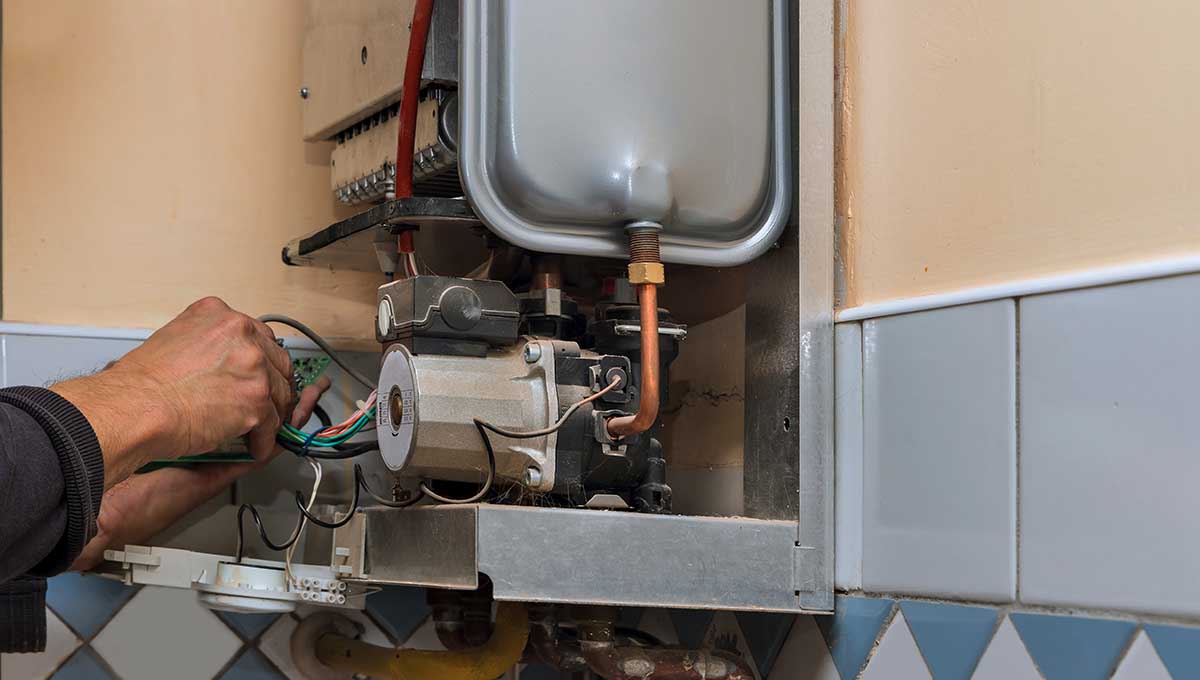Can You Still Use Water If Your Water Heater Is Leaking?
At Bright Side Plumbing, we understand the importance of a fully functional water heater for your daily needs. In this article, we aim to address the common question: Can you still use water if your water heater is leaking?
We will provide you with detailed insights and guidance on this matter, ensuring you have the information to make informed decisions regarding your water heating system.
Understanding the Issue: Why Is Your Water Heater Leaking?
Before we delve into whether you can still use water when your water heater is leaking, we must understand the possible reasons behind the leakage. Identifying the source of the leak can help you assess the severity of the situation and determine the appropriate course of action.
- Pressure Relief Valve: The pressure relief valve is designed to release excess pressure within the water heater. If this valve is faulty or damaged, it can cause leaks. In such cases, using the water heater is generally safe, but immediate attention from a professional is necessary to fix the valve.
- Drain Valve: The drain valve is responsible for flushing out sediment and debris from the water heater. If the drain valve becomes loose or develops a leak, it can result in water leakage. Depending on the severity, you can still use the water heater temporarily while awaiting repairs.
- Tank Corrosion: Over time, the inner lining of the water heater tank can corrode, leading to leaks. If the tank is leaking, it poses a significant problem, requiring immediate action. In such cases, it is only advisable to use the water heater once the issue is resolved.
- Pipes and Fittings: Leaks can also occur due to damaged or faulty pipes and fittings connected to the water heater. These leaks might not directly involve the water heater itself, and the usability of the water heater depends on the severity of the issue.
Can You Still Use Water If Your Water Heater Is Leaking?
The answer to this question depends on the specific cause and severity of the leakage. We will explore different scenarios and provide recommendations accordingly.
Scenario 1: Minor Leakage from the Pressure Relief Valve or Drain Valve
If the leak is minor and originates from the pressure relief or drain valve, it is generally safe to use the water heater temporarily. However, it is crucial to address the issue promptly to avoid potential damage or further complications. We recommend taking the following steps:
- Turn off the power supply if you have an electric water heater: Locate the circuit breaker or switch dedicated to the water heater and switch it off. This will prevent any electrical hazards while you assess and address the leakage.
- Shut off the water supply: Locate the cold water supply valve connected to the water heater and close it. This will prevent additional water from entering the tank and exacerbating the leakage.
- Contact a professional: Contact a certified plumber or water heater specialist to inspect and repair the pressure relief valve or drain valve. They can provide expert guidance and ensure the issue is resolved correctly.
Scenario 2: Tank Corrosion or Severe Leakage
If the leak is significant or originates from the tank itself, it is recommended to not use the water heater until the problem is fixed.
Continuing to use a leaking water heater can lead to further damage, water wastage, and potential safety hazards.
For example, a water leak snuffing out of a pilot light can cause a gas leak. In this situation, we advise the following steps:
- Turn off the power supply or gas valve: As mentioned, locate the circuit breaker or switch dedicated to the water heater and switch it off to eliminate any electrical risks.
- Shut off the water supply: Locate the cold water supply valve connected to the water heater and close it. This will prevent additional water from entering the tank and worsening the leakage.
- Drain the water heater: Drain it to minimize the risk of water damage. Connect a hose to the drain valve at the bottom of the tank and direct it to a suitable drainage area. Open the valve to allow the water to flow.
- Seek professional assistance: Contact a qualified plumber or water heater technician immediately to inspect and repair the leaking water heater. They will assess the extent of the damage, provide appropriate solutions, and ensure the water heater is repaired or replaced as needed.
Preventive Measures for Water Heater Maintenance
While dealing with a leaking water heater is undoubtedly a hassle, you can take preventive measures to minimize the chances of encountering such issues. Here are some essential maintenance tips:
- Regular inspections: Periodically check your water heater for any signs of leaks, corrosion, or damage. Pay attention to the pressure relief valve, drain valve, pipes, and fittings. Timely detection can help address potential problems before they escalate.
- Flushing and sediment removal: Over time, sediment can accumulate at the bottom of the water heater tank, leading to corrosion and inefficiency. Regularly flushing the tank and removing sediment can help maintain the water heater's performance and prolong its lifespan.
- Temperature and pressure monitoring: Ensure your water heater’s temperature and pressure settings are within the recommended range. Excessive pressure or temperature can strain the system and increase the likelihood of leaks.
- Professional servicing: Schedule periodic maintenance and servicing by a qualified technician. They can perform thorough inspections, clean the system, and identify any underlying issues before they become significant problems.
In conclusion, a leaking water heater requires immediate attention to prevent further damage and ensure safety. The usability of the water heater depends on the severity and cause of the leakage.
For minor leaks from the pressure relief valve or drain valve, you may be able to use the water heater temporarily while awaiting repairs.
However, if the leak is severe or originates from the tank, it is crucial to avoid using the water heater until it is repaired or replaced.
Remember to take appropriate measures such as turning off the power supply, shutting off the water supply, and contacting a professional plumber or water heater technician for assistance. By promptly addressing the issue and implementing preventive maintenance measures, you can ensure optimal performance and longevity of your water heater.
If you require further assistance or have additional questions, don't hesitate to contact our team of experts at Bright Side Plumbing. We are here to provide reliable guidance and solutions for all your water heater needs.
I hope this article has been helpful.





